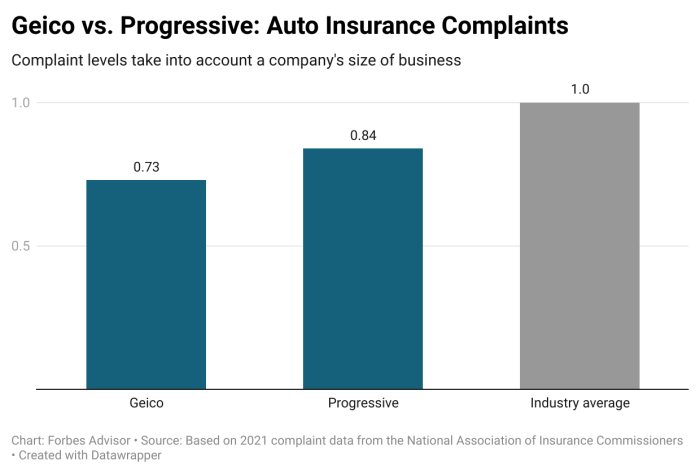Exploring the realm of primary care physicians for chronic conditions, this introductory paragraph aims to draw in readers with valuable insights and information presented in a formal yet engaging manner.
Delving deeper into the qualifications and specializations required for top primary care physicians in managing chronic conditions is essential for making informed decisions.
Researching Best Primary Care Physicians
When it comes to finding the best primary care physicians for chronic conditions, thorough research is essential to ensure you receive the best possible care tailored to your specific needs. Here are some tips to help you navigate this process effectively.
Identifying Reputable Sources
- Start by checking with your health insurance provider for a list of in-network primary care physicians specializing in chronic conditions. This can help narrow down your options and potentially save you money on medical expenses.
- Consult online review platforms such as Healthgrades, Zocdoc, or RateMDs to read patient reviews and ratings of primary care physicians in your area. These platforms can provide valuable insights into the quality of care provided by different doctors.
- Ask for recommendations from friends, family members, or other healthcare professionals who may have experience with primary care physicians specializing in chronic conditions. Personal referrals can offer trustworthy insights into a doctor's bedside manner and treatment approach.
Criteria for Evaluating Primary Care Physicians
- Verify the physician's credentials and board certifications to ensure they have the necessary training and expertise in managing chronic conditions.
- Consider the doctor's experience and track record in treating patients with similar chronic conditions. Look for physicians who have a proven success rate and positive outcomes.
- Evaluate the doctor's communication style and bedside manner. A caring and attentive physician who listens to your concerns and involves you in treatment decisions can make a significant difference in your healthcare experience.
Tips for Conducting Thorough Research
- Schedule consultations with multiple primary care physicians to discuss your medical history, treatment preferences, and ask any questions you may have. This can help you gauge the doctor's compatibility with your needs and establish a rapport.
- Inquire about the doctor's approach to managing chronic conditions, including their treatment philosophy, available treatment options, and follow-up care plans. Make sure their approach aligns with your values and preferences.
- Don't hesitate to seek a second opinion if you feel uncertain about a physician's diagnosis or treatment plan. Your health is paramount, and it's crucial to feel confident in your chosen primary care physician.
Qualifications and Specializations
When looking for the best primary care physicians to treat chronic conditions, it is crucial to consider their qualifications and specializations. These factors play a significant role in determining the quality of care and treatment outcomes for patients with chronic illnesses.
Essential Qualifications and Certifications
- Board Certification: Ensure the primary care physician is board-certified in internal medicine or family medicine, demonstrating expertise and adherence to high standards of care.
- Advanced Training: Look for physicians who have completed additional training or fellowships in areas such as geriatrics, endocrinology, or cardiology to better manage chronic conditions.
- Continuing Education: Verify that the physician participates in ongoing education and stays up-to-date with the latest advancements in treating chronic diseases.
Importance of Specialization in Managing Chronic Conditions
Primary care physicians with specialized training in managing chronic conditions bring a deeper understanding and skill set to effectively diagnose, treat, and monitor patients with complex medical needs. Their focused expertise allows for more personalized and comprehensive care tailored to each individual's condition.
Impact of Expertise and Experience on Treatment Outcomes
- Diagnostic Accuracy: Experienced physicians can accurately diagnose chronic conditions early, leading to timely interventions and improved outcomes.
- Treatment Planning: Expertise in managing chronic diseases enables physicians to develop customized treatment plans that address not only the symptoms but also the underlying causes of the condition.
- Preventive Care: Skilled primary care physicians can implement preventive strategies to minimize complications and enhance the overall well-being of patients with chronic conditions.
Patient Reviews and Testimonials
Patient reviews and testimonials play a crucial role in helping individuals choose the best primary care physician for managing chronic conditions. These firsthand accounts provide valuable insights into the quality of care, communication skills, and overall satisfaction experienced by patients under the physician's care.
Analyzing Patient Feedback
When analyzing patient reviews and testimonials, consider the following aspects:
- Consistency in feedback: Look for common themes and patterns in reviews to get a more accurate representation of the physician's performance.
- Specificity of feedback: Pay attention to detailed accounts of patient experiences, as they can offer a deeper understanding of the physician's approach to managing chronic conditions.
- Response to negative feedback: Assess how the physician addresses and resolves any negative feedback, as this can demonstrate their commitment to patient satisfaction and improvement.
Reliability of Online Platforms
Online platforms can be a valuable source of patient reviews, but it's essential to differentiate authentic feedback from biased or fake reviews. Consider the following tips:
- Check multiple sources: Look for reviews across different platforms to get a more comprehensive view of the physician's reputation.
- Verify credibility: Consider the credibility of the platform and look for reviews from verified patients to ensure authenticity.
- Read between the lines: Be cautious of overly positive or negative reviews and focus on balanced feedback that provides constructive insights.
Communication and Patient-Centered Care
Effective communication between primary care physicians and patients with chronic conditions is crucial for successful treatment outcomes. It helps build trust, ensures clarity in treatment plans, and allows for shared decision-making between the physician and the patient.Patient-centered care plays a significant role in the treatment of chronic conditions by primary care physicians.
It involves tailoring treatment plans to meet the individual needs and preferences of the patient. This approach recognizes the patient as an active participant in their healthcare journey, taking into account their values, beliefs, and goals.
Strategies for Effective Communication
- Be prepared for appointments by writing down questions, concerns, and symptoms beforehand.
- Ask for clarification if you do not understand something your physician explains.
- Share your treatment preferences and goals with your physician to align on a personalized care plan.
- Provide feedback on how you are feeling and any changes in your condition between appointments.
- Utilize secure messaging or patient portals to communicate with your physician outside of visits.
Concluding Remarks
In conclusion, the importance of effective communication, patient-centered care, and thorough research in selecting the best primary care physician for chronic conditions cannot be understated. This discussion sheds light on key aspects to consider for optimal healthcare outcomes.
FAQ Insights
What qualifications should I look for in a primary care physician for chronic conditions?
Look for certifications, experience in managing chronic conditions, and a specialization in this field for the best outcomes.
How can patient reviews help in choosing a primary care physician for chronic conditions?
Patient reviews offer insights into the physician's performance in managing chronic conditions, aiding in decision-making for suitable healthcare providers.










